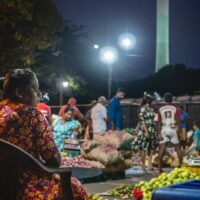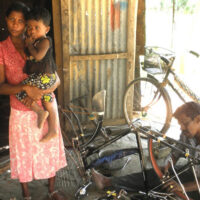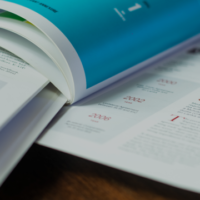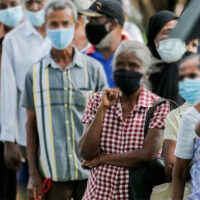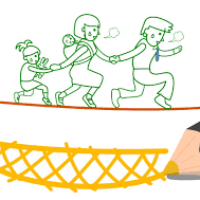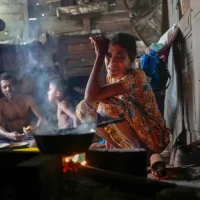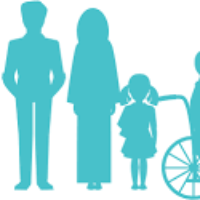No Excuse for Single Use!
By Shabnam Hilal
On 6 June 2019
Our island paradise is on the edge of a plastic calamity! Not only is Sri Lanka the Pearl of the Indian Ocean but unfortunately it is the ‘pint-sized’ global polluter of the ocean as well. As we walk along our coasts or travel further out to sea, we are confronted with horrific amount of plastic waste that is indiscriminately dumped in the oceans. This is not only shocking but dangerous to our oceans, to the species that live there but also to us.
Since plastic was invented a century ago, it has become an integral part of our lives and thus not a day passes without stumbling across some sort of plastic waste. Today you’ll find plastic where you’ll least expect it, from the food we consume to the environments in which we live. You can’t buy a piece of pumpkin in the supermarket without it being wrapped in plastic!
On World Environment Day, we look at sustainable consumption and use of alternatives, as we have come to a critical point where there is No Excuse for Single Use!
There are a number of local initiatives by individuals, communities and companies who are taking decisive action to try and halt the consumption of single-use, throwaway plastics. It is a movement that needs more momentum, and needs to be fuelled through our choices.
Individuals are increasing their power as consumers, by avoiding plastic straws and plastic plates and the market is now offering alternatives such as paper or metal straws or areca leaf plates. People are opting to take their own bags to buy vegetables and other groceries, putting more than one item in a bag is also starting get some traction. There are also now bio degradable bags, bags made out jute, cotton, cloth etc., available that can easily replace the plastic bags.
Today there is greater support from communities on cleaning beaches and coastlines, and other natural areas. There are also community groups that have set up flea markets and selling used goods, that also encourage a more sustainable lifestyle. It also gives charities the opportunity to raise money for their cause by selling second hand or up-cycled items as vendors.
There are also small businesses and local designers who have turned up-cycle plastic trash into jewellery and other household items. Some have social benefits such as creating income earning opportunities for poor women or therapy to others, and adding more value to the product.
The private sector is also stepping up and providing us options by recycling PET bottles in brushes and polyester fibre. Indeed Sri Lankan National Cricket Team are sporting a jersey that contains fibre woven from PET bottles recovered from the beaches of Sri Lanka for the Cricket World Cup.
However, in addition to reusing & recycling plastics, more community action and awareness is needed to reduce consumption of plastic. This will greatly reduce the plastic problem from the source as well. We can easily stop or reduce purchasing commodities which are made for single use, such as small size plastic water and drink bottles, individual yoghurt cups and ice cream cups, small size toothpaste, shampoos and other toiletries, etc. Purchasing bigger sizes is also economical and saves us money!
It is timely that we take steps to say no to single use plastic. We need to REFUSE, REDUCE, REUSE, & RECYCLE where possible, and use alternatives wherever we can. Ultimately our plastic problem – much like the state of the economy – is one of design, both in the plastics themselves and the linear economic model that makes throwing things away profitable. There is a cost of disposal, that we are ignoring because of short term conveniences and profitability. Thus we need to cultivate sustainable practices of consumption, where the end result fulfills our needs without damaging the natural world that sustains it.
